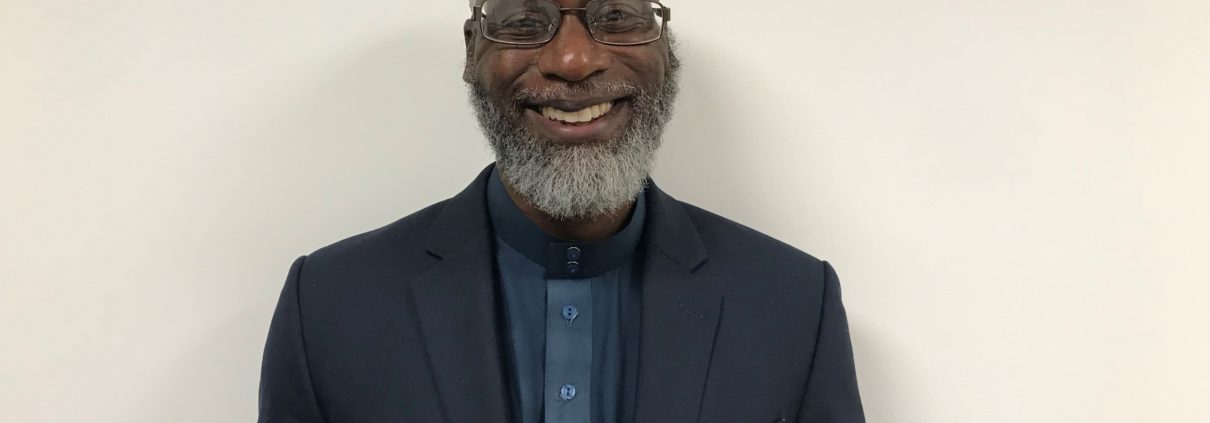This Black History Month, a Reminder: I Am Somebody!
As we welcome Black History Month 2022, I’m writing to share a reflection with our CFSY community on the Black experience in America, particularly as it relates to the work we do. The excessively punitive sentencing laws the CFSY aims to transform are a direct product of this country’s long history of entrenched institutional racism. Historically, it has been in large part Black Americans—Black women in particular—who have been the driving force behind our efforts at deconstructing the oppressive systems of racism and inequity that were built on the legacy of slavery and the culture of white supremacy. However, I believe that it is every American’s collective charge to voluntarily enlist as active allies and accomplices in this long-standing war for dignity, freedom, justice, and equality for all. A starting point may be to (re)examine the narratives that we are told—or that we subconsciously tell ourselves relative to Blackness, power, privilege, and the role of personal responsibility.
Inarguably, from our country’s inception until now, Black Americans have faced incomparable obstacles to their pursuits of life, liberty, and happiness. Damning—albeit patently untrue—narratives about Black youth have been a constant thread traceable back hundreds of years, culminating in the superpredator myth of the 1990s which intensified the youth incarceration crisis we are still working to reverse to this day. (You can read about the myth’s history in this report we released last year as part of our No Child Is Born Bad campaign, titled “The Origins of the Superpredator: The Child Study Movement to Today.”)
These superpredator narratives were rife with absurdities about Blackness; not only criminalizing Black youth, but unabashedly mischaracterizing children as a “new breed” of offenders: “Kids that have absolutely no respect for human life and no sense of the future … stone-cold predators!” Elsewhere, young people were described as “fatherless, Godless, and jobless” and as “radically impulsive, brutally remorseless youngsters who murder, assault, rob, burglarize, deal deadly drugs, and join gun-toting gangs.” These racialist tropes reinforced the centuries-old tradition of dehumanizing Blackness and furthering the ridiculous notion that Black and Brown children add no value to this society; that they are throwaway children who need to be disappeared from our midst.
As discussed in my conversation with Clint Smith, acclaimed author of “How the Word Is Passed,” nothing has been more powerful in debunking this myth than the lives we live. My very existence, the fullness of my humanity and my story, obliterates every single word, every single thought, borne of an incessant superpredator narrative that continues to invade our public conscience. I am one of several hundred former life-sentenced children who was disappeared from society. I spent 31 years in prison, and yet, in the words of seminal civil rights icon Jesse Jackson, there is still a need for me to reaffirm and proclaim to the world: “I am somebody!” I am a man of faith, a dutiful husband, a nurturer, and a sustainer. I am a kind neighbor, a warrior for justice, and a source of inspiration for many of my colleagues in society as well as those still languishing in prison. I am not a murderer. I am not a menace to society. I am not an ex-con to be feared, managed, supervised, or kept under surveillance. And I am not a Juvenile Lifer. I am Abd’Allah Wali Lateef.
Similarly, the daily lives of so many other Black and Brown Americans who spent years behind bars, including many of my ICAN brothers and sisters, are proof that those once viewed as disposable are capable of the most selfless acts of charity, kindness, and love.
We have learned that when we see one another, when we hear one another, when we fight for and alongside one another, freedom and justice prevail. This year, we deepen our commitment to reclaiming our own stories through radical truth telling, both on our specific advocacy issue and the many intersecting injustices that inhibit Black and Brown folks from experiencing the full promise of social and economic freedom, dignity, and self-determination. We hope you’ll join us as we celebrate, remember, and chart a meaningful path forward that compels us to collectively re-examine the narratives that inform our thoughts, speech, and interactions with Black, Brown, Indigenous, and other people of color—if we are to become, at long last, the Beloved Community that Dr. Martin Luther King, Jr. prescribed.
Onward.
Abd’Allah Lateef
Co-Deputy Director, CFSY



